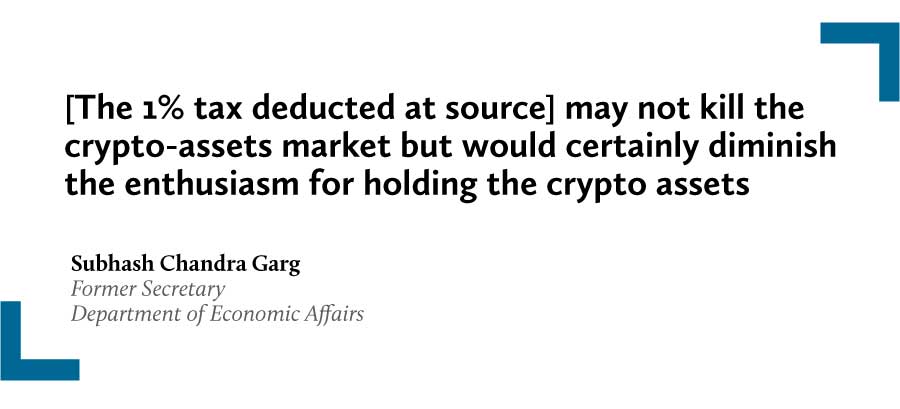Lack of clarity over future legitimacy and plans to levy hefty taxes threaten to clip the wings of jittery cryptocurrency investors. Freny Patel reports
Among many things, the ongoing Russia-Ukraine war has put the spotlight on cryptocurrency. It is gaining global acceptance based on the sheer volume of donations flooding into war-torn Ukraine in the form of cryptocurrency, largely to finance military support. The virtual digital asset class is no longer seen as a shady “black-market” transaction owing to reliance upon it in this geopolitical and humanitarian crisis.
Despite concerns raised by a few central banks that cryptocurrency could be used by Russia to evade economic sanctions imposed by the US and the EU, many crypto exchanges across the world have strictly adhered to the economic sanctions and blocked many Russian accounts. This to an extent dismisses the industry perception that cryptocurrency is “politically neutral”.
Back at home, the Indian government is mulling over whether cryptocurrency needs to be regulated, but this is for different reasons, none of which have anything to do with the ongoing conflict in Eastern Europe. After all, India has abstained from voting against Russia in the UN.
There has been a lot of speculation on whether the Cryptocurrency and Regulation of Official Digital Currency Bill would ban cryptocurrency. And if the government chose not to impose a ban, then the next question was how cryptocurrency would be defined. Given the apprehensions publicly voiced by the Reserve Bank of India, cryptocurrency is unlikely to be considered a currency or a financial asset. At best, it may be defined as an electronic code with no intrinsic value, according to the central bank general manager, Anuj Ranjan.
Since 2013, the central bank’s stance has remained unchanged, having issued several advisories to banks urging caution, questioning the financial stability of cryptocurrency, and warning that the volatility of the assets could see investors making huge losses.

You must be a
subscribersubscribersubscribersubscriber
to read this content, please
subscribesubscribesubscribesubscribe
today.
For group subscribers, please click here to access.
Interested in group subscription? Please contact us.


























